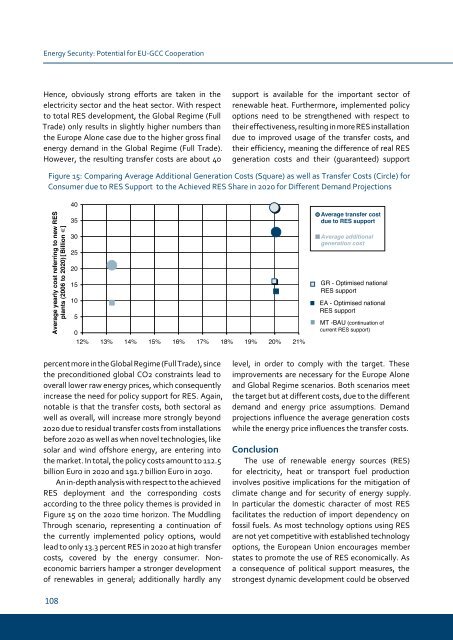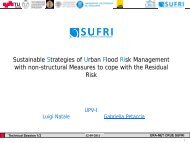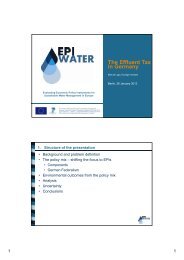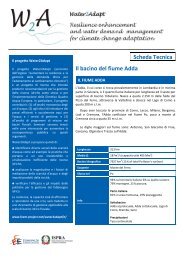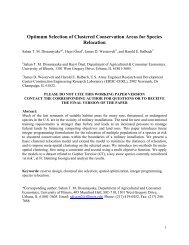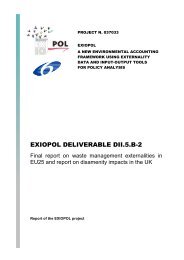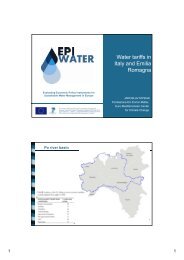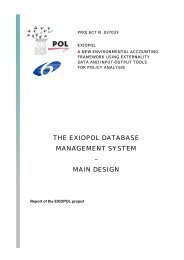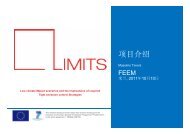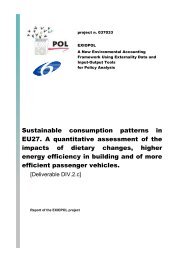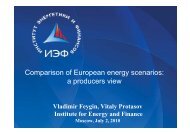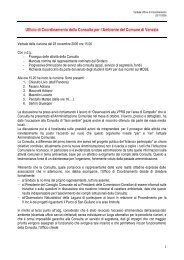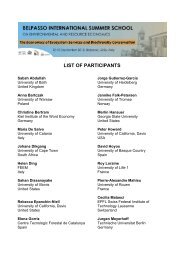Gulf and European Energy Supply Security - Feem-project.net
Gulf and European Energy Supply Security - Feem-project.net
Gulf and European Energy Supply Security - Feem-project.net
You also want an ePaper? Increase the reach of your titles
YUMPU automatically turns print PDFs into web optimized ePapers that Google loves.
<strong>Energy</strong> <strong>Security</strong>: Potential for EU-GCC Cooperation<br />
Hence, obviously strong efforts are taken in the<br />
electricity sector <strong>and</strong> the heat sector. With respect<br />
to total RES development, the Global Regime (Full<br />
Trade) only results in slightly higher numbers than<br />
the Europe Alone case due to the higher gross final<br />
energy dem<strong>and</strong> in the Global Regime (Full Trade).<br />
However, the resulting transfer costs are about 40<br />
percent more in the Global Regime (Full Trade), since<br />
the preconditioned global CO2 constraints lead to<br />
overall lower raw energy prices, which consequently<br />
increase the need for policy support for RES. Again,<br />
notable is that the transfer costs, both sectoral as<br />
well as overall, will increase more strongly beyond<br />
2020 due to residual transfer costs from installations<br />
before 2020 as well as when novel technologies, like<br />
solar <strong>and</strong> wind offshore energy, are entering into<br />
the market. In total, the policy costs amount to 112.5<br />
billion Euro in 2020 <strong>and</strong> 191.7 billion Euro in 2030.<br />
An in-depth analysis with respect to the achieved<br />
RES deployment <strong>and</strong> the corresponding costs<br />
according to the three policy themes is provided in<br />
Figure 15 on the 2020 time horizon. The Muddling<br />
Through scenario, representing a continuation of<br />
the currently implemented policy options, would<br />
lead to only 13.3 percent RES in 2020 at high transfer<br />
costs, covered by the energy consumer. Noneconomic<br />
barriers hamper a stronger development<br />
of renewables in general; additionally hardly any<br />
10<br />
support is available for the important sector of<br />
renewable heat. Furthermore, implemented policy<br />
options need to be strengthened with respect to<br />
their effectiveness, resulting in more RES installation<br />
due to improved usage of the transfer costs, <strong>and</strong><br />
their efficiency, meaning the difference of real RES<br />
generation costs <strong>and</strong> their (guaranteed) support<br />
Figure 15: Comparing Average Additional Generation Costs (Square) as well as Transfer Costs (Circle) for<br />
Consumer due to RES Support to the Achieved RES Share in 2020 for Different Dem<strong>and</strong> Projections<br />
level, in order to comply with the target. These<br />
improvements are necessary for the Europe Alone<br />
<strong>and</strong> Global Regime scenarios. Both scenarios meet<br />
the target but at different costs, due to the different<br />
dem<strong>and</strong> <strong>and</strong> energy price assumptions. Dem<strong>and</strong><br />
<strong>project</strong>ions influence the average generation costs<br />
while the energy price influences the transfer costs.<br />
Conclusion<br />
The use of renewable energy sources (RES)<br />
for electricity, heat or transport fuel production<br />
involves positive implications for the mitigation of<br />
climate change <strong>and</strong> for security of energy supply.<br />
In particular the domestic character of most RES<br />
facilitates the reduction of import dependency on<br />
fossil fuels. As most technology options using RES<br />
are not yet competitive with established technology<br />
options, the <strong>European</strong> Union encourages member<br />
states to promote the use of RES economically. As<br />
a consequence of political support measures, the<br />
strongest dynamic development could be observed


